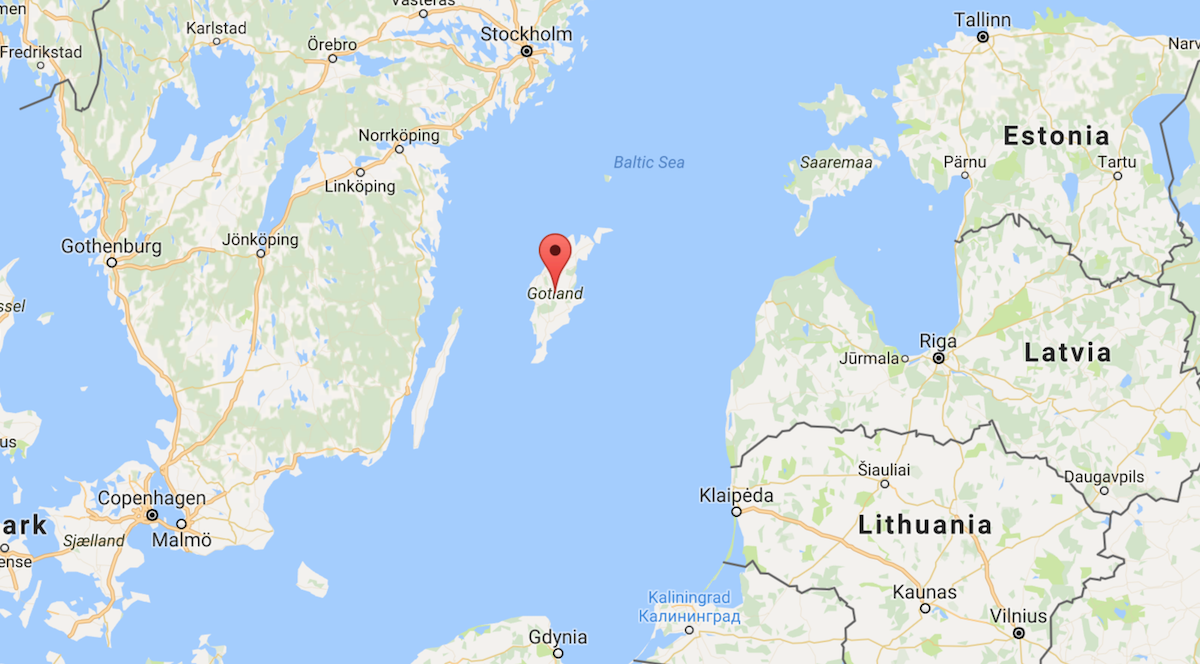Today, security concerns dominate the discussion. The major concern surrounds Slite Harbor on eastern Gotland, which the Kremlin wants to lease and expand. The Kremlin has also expressed a wish to expand Russian presence in the harbor of Karlshamn in southeastern Sweden. At the same time, the Finns, sensitive to Åland island's strategic position between Finland and Sweden, have reopened discussion about re-arming those islands – which were demilitarized after the Crimean War (in 1856) by international accord. From Åland any powerful nation could dominate the sea and airspace over middle and northern Finland and Sweden.
When the traditionally restrained media in Sweden and Finland express openly skeptical positions about Russia's intentions, it is evident that the security climate in the Baltic Sea region has become extremely complicated, even hazardous.
Already in 2010, the Swedish (Latvian born) General Karlis Neretnieks effectively articulated the central, strategic role of Gotland for all modern military and political players in the central and southern Baltic region. His warnings were ignored for years by all Swedish political parties, defense planners, ministers and policy makers. Only recently has his professional perspective gained reasonable traction inside the government and parliament: namely that the nation that controls Gotland will also dominate the entire region's airspace and naval defense. That same nation would also, and this is crucial, be able to deny anyone access into the Baltic Sea.
In response Sweden has slowly begun rearming, though from an alarmingly low level. Some hundred and fifty soldiers have been re-stationed on Gotland. By comparison, Swedish defense spending is still less than half of tiny Estonia's – just below 1% of GDP- compared with Estonia's 2+%. Sweden's major political parties (including the right-center Moderates, while their Prime Minister Reinfeldt was in charge), downgraded defense to a lowly “special interest”. Now they optimistically want to jump on the NATO bandwagon in a single leap – without paying the required membership fee, which would require a doubling of the Swedish defense spending to 2% GDP.
Largely overlooked in the Swedish debate is the fact that Gotland, while coveted by the Kremlin, is just as important to NATO planners. In the evolving regional security situation – and to anticipate Putin – they could, in any given moment, issue Sweden an offer it cannot refuse, to secure Gotland for NATO, to anticipate Russia. Anything else would be a breach of duty for NATO.
To understand the escalating situation, it may be useful to recall a few historical parallels. During the Second World War, early in April 1940, when the panic-stricken British began to lay mines off the coast of Norway, the much better prepared Germans quickly neutralized the move. On April 9, they surprised everybody with their well-rehearsed “Operation Weserübung”, and in one strategic blow occupied all of Norway.
We can also compare with the outbreak of the Seven Day War in the Middle East in the summer of 1967. The surrounding Arab states armed themselves, joined forces and vociferously threatened Israel with war. But Israel, with its far superior strategic military intelligence and planning, struck hours before the attack, wiped out the Arab air forces and took control the skies – a move that cemented the outcome of the war.
What does this have to do with the island of Gotland? Well, we can assume that the Kremlin has prepared its Operation Gotland far better than the long-winding, slow-footed and regionally inferior NATO. In an effort to gain strategic advantage, Putin, like Hitler in the spring of 1940, and the Israelis in the summer of 1967, will ignore all existing conventions and declarations of neutrality. Always well-informed Kremlin will repel all NATO approaches on Gotland and act, as it recently did in Georgia, the Crimea and Ukraine. Anything else would be a breach of duty for the Kremlin.
At this point, the scenario turns volatile. Getting the Swedish government, with its “feministic foreign policy” and weak defenses, to yield and to break, will not be difficult for a decisive Kremlin. Putin and his generals need not resort to provocation as they did in the Georgia war in 2008, or to infiltrate with “little green men”, armed to the teeth, as they did in Ukraine. To achieve Swedish submission, it may simply suffice to call Sweden's ambassador in Moscow to the Kremlin, and in passing, mumble something about well-known Russian heavy bomber inflights over central Sweden, whereby in the near future, some pilot by mere accident could drop one or two tactical charges in the waters outside Stockholm. – Or…?
Hain Rebas, Up North, December 2016
Hain Rebas is a ret. professor of history and a former Estonian defense minister.




